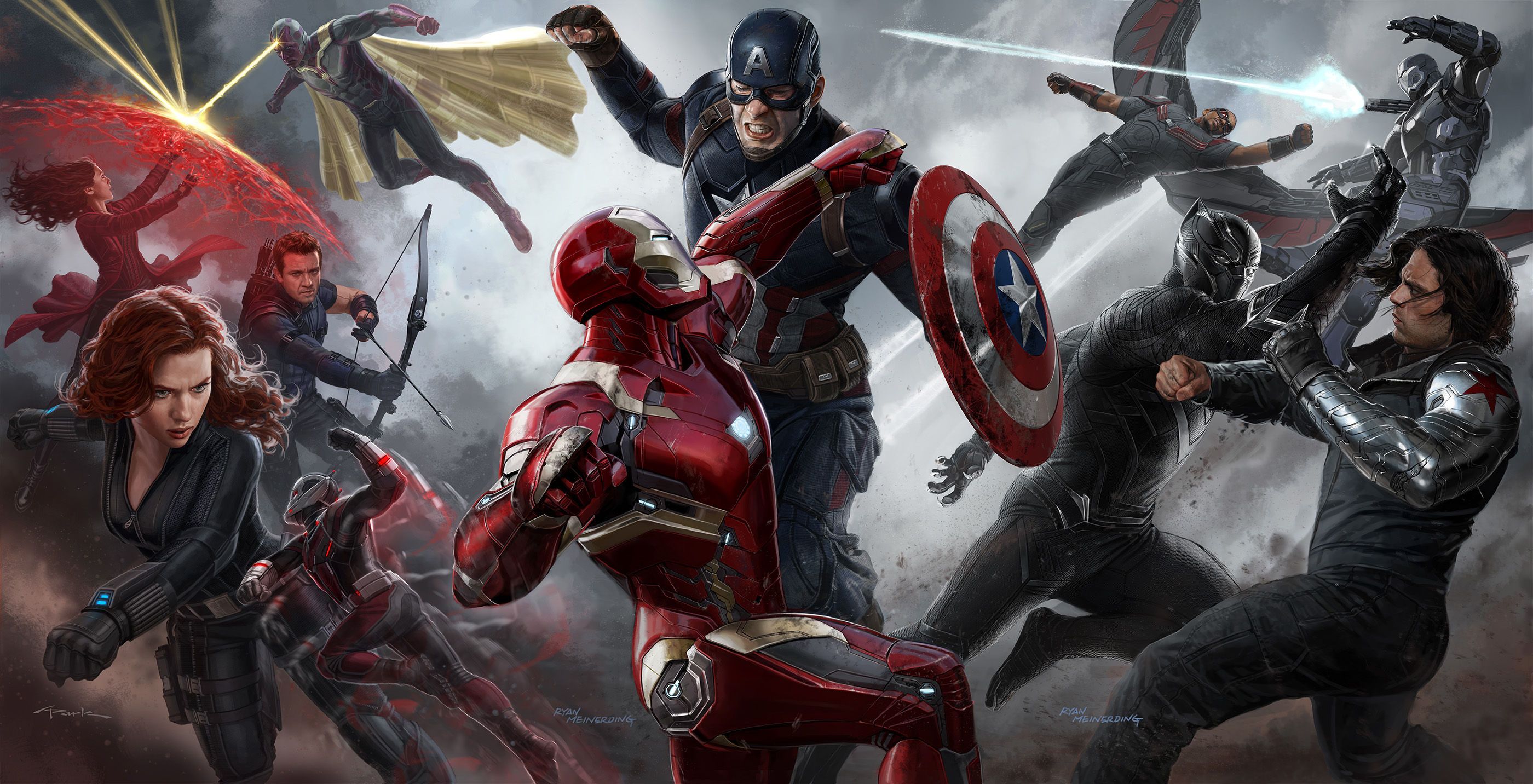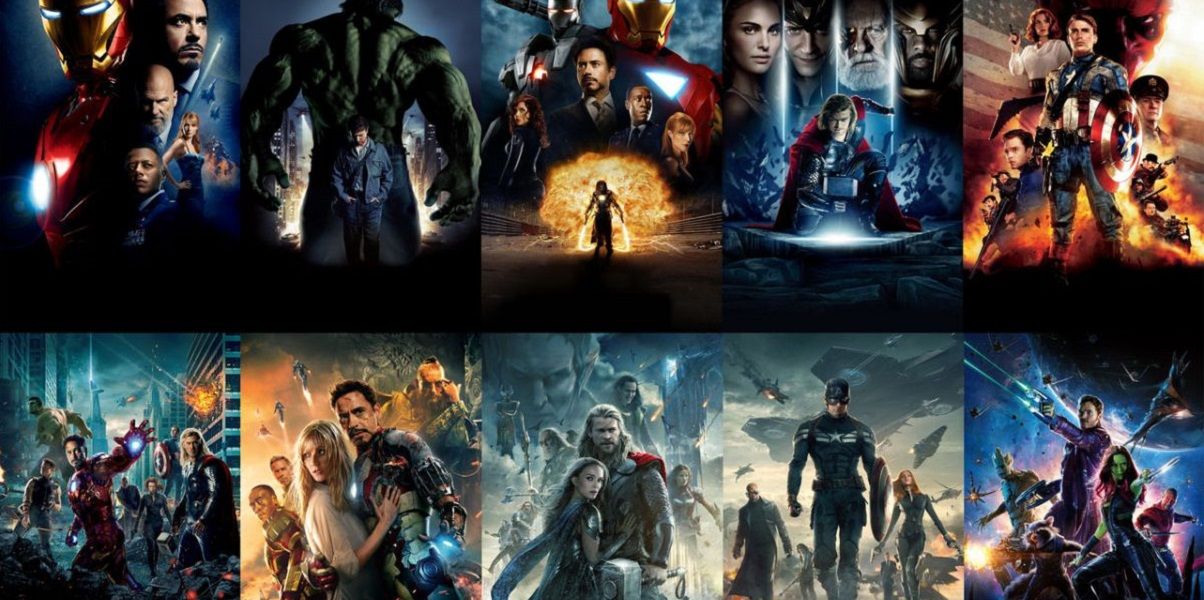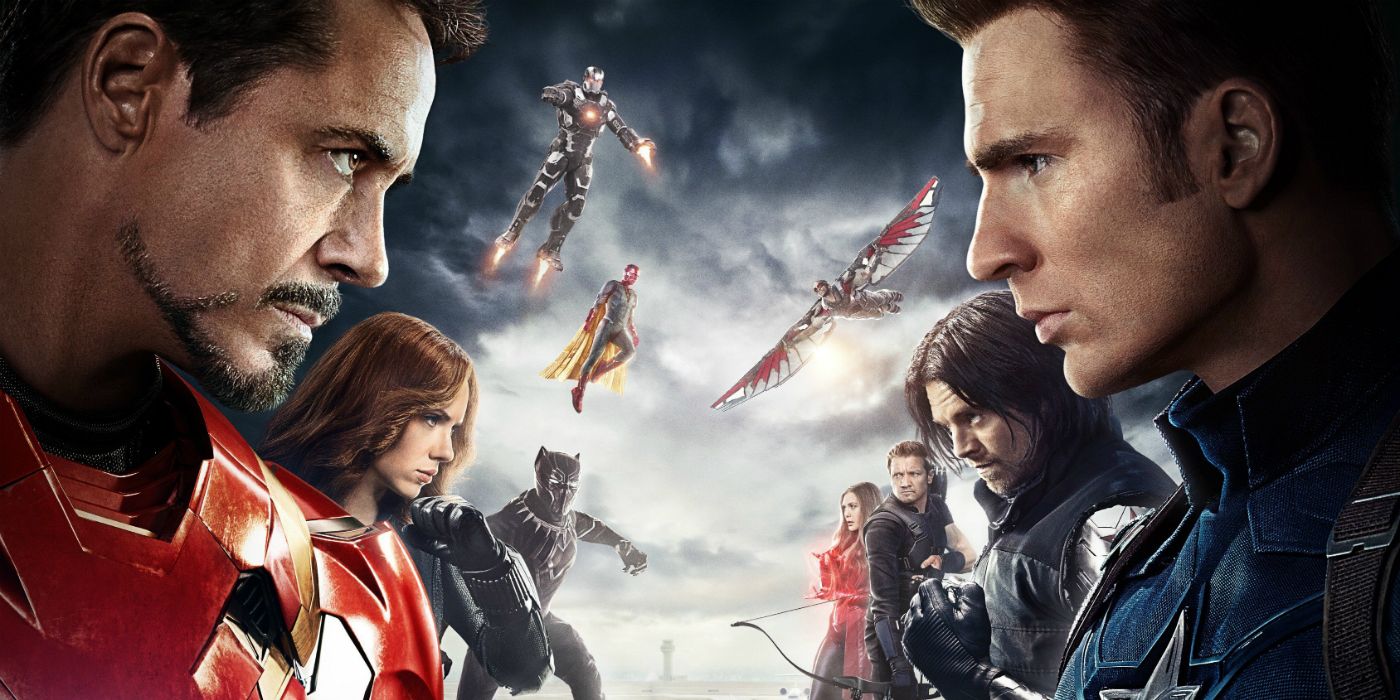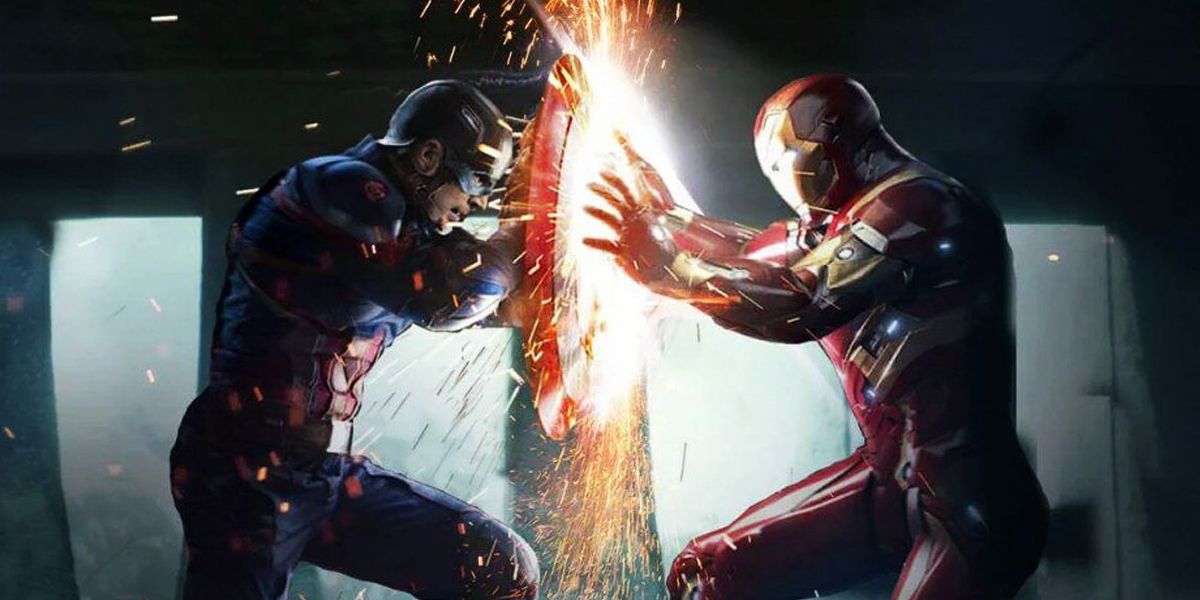Theaters today are dominated by comic book movies, and the superhero variety is chief among them. For every Kingsman or Scott Pilgrim, there's half a dozen films featuring characters with muscles and/or capes battling it out for the sake of all humanity. This year alone has three of the largest superhero franchises - the Marvel Cinematic Universe, the DC Extended Universe, and Fox's X-Men series - releasing major tentpole films, saturating the landscape with stories torn from the pages of comic books.
Yet, of all the superhero movies to have released thus far, only one has come close to encapsulating how it feels to read a comic book, and specifically a major comic book event - Captain America: Civil War. All its many characters, their shared histories, how they pop in and out of the narrative, the very fact that the movie simply cannot work without practically every film leading to it - these are all staples of comic book canon, of a sprawling universe that's existed for decades on the page but has now been replicated on the big screen.
Building a Universe
Marvel Studios has made comic book fans of us all. By setting the films in a shared universe, Marvel has duplicated the rich canon fans have enjoyed from comic books for the mainstream movie-going audience. When watching any of the MCU films, whether it be the heavily integrated Captain America: The Winter Soldier or the on the fringe Guardians of the Galaxy, viewers can't help but wonder what's happening in the other corners of the universe, knowing that somewhere unseen Marvel characters are living out their own adventures.
And in the case of Captain America: Civil War, being versed in at least some of the MCU canon becomes crucial. The films's plot hinges on viewers recalling where they last saw Tony Stark and Steve Rogers, how during Avengers: Age of Ultron they were already butting heads over the very issues that would divide them in Civil War, and keeping in mind the tenuous partnership Tony and Steve have built during their time as Avengers. Yet it also expects viewers to remember Steve's loyalty to his childhood best friend, Bucky Barnes, and the reconditioning he went under as Hydra's agent, The Winter Soldier. Audiences need to be emotionally invested in these characters and their struggles, and that only comes from hours upon hours spent digesting the sprawling narrative these characters inhabit.
However, the very thing that makes Civil War such a rewarding experience for MCU fans is also what makes the film somewhat inaccessible for new viewers. Most would agree that Civil War is a poor point of entry to the MCU, but that in itself is part of what makes Civil War such a comic book movie - it's built on a foundation of the stories that came before, and without them, it crumbles.
The Superhero Ensemble
Captain America: Civil War boasts one of the largest ensembles of superheroes ever assembled for the big screen. Not only that, but each character included has a purpose in the story, from the huge importance of Bucky's return to the further universe-building of T'Challa's introduction. Not a single character is wasted or tossed aside as merely a cameo - even those who only appear for the film's wildly impressive "splash panel" battle. And that's exactly what a good event comic does: brings together a multitude of characters from across the universe, using them effectively to further the story at hand.
In Civil War, the emotional throughline comes from audiences knowing these characters, knowing what they've gone through, and most importantly knowing what they've gone through together. The Avengers may have assembled the team, but that was only their first meeting, none of them (except Black Widow and Hawkeye) had any shared history. Yet by the time the MCU reaches Civil War, practically everyone knows everyone else. When Black Widow first sides with Iron Man, only to later help Cap and Bucky escape, it matters in a way that it simply couldn't without the relationships these characters have built over the course of the MCU.
But just having established characters interact in ways that tug at their shared history isn't enough. Captain America: Civil War takes it a step further by bringing in characters from across the MCU, and most with little to no introduction. What's makes this so impressive - and representative of how characters can be used in major comic book events - is how a character's entrance doesn't impede the action but rather ramps it up. For example, the introduction of Scott Lang - a character viewers wouldn't be familiar with if they haven't seen Ant-Man - happens with very little fanfare: he's revealed having a short, funny exchange with Falcon, Cap and the others, then it's off to battle. While watching it, the scene is practically begging for a little text box from the editor to pop up with a message like, "To find what Falcon is referring to, check out Ant-Man issue x." Peter Parker's arrival, too, has this sense about it and there isn't even a Marvel-made Spider-Man movie to reference (at least not yet).
Unexpected Ramifications
Along with its adherence to MCU canon and huge cast, Captain America: Civil War is also built upon expectations. And like a great many comics which were so anticipated, it doesn't necessarily deliver on those expectations. Given that the film draws inspiration from a significant arc in Marvel Comics history and was so heavily marketed as the film which would irrevocably alter the MCU, some fans were a little disappointed in Marvel Studios' Civil War being tame in comparison, more of a fundamental disagreement than all out war.
Still, there were consequences from of the events of Civil War - perhaps not what audiences either expected or were led to believe, but they were notable ramifications all the same. The Avengers as they have been established in the MCU are fractured, likely not beyond repair, but the film doesn't end on the same hopeful note as either The Avengers or Age of Ultron. Tony and Steve's future reconciliation is heavily implied, but it may not come for another two years, not until Avengers: Infinity War Part 1 (title TBC). Rhodey is now paralyzed, and though he will likely walk again thanks to fancy Stark technology, the very fact that it happened and that Vision was ultimately responsible will linger with these characters from here on.
There also isn't any indication of how the public at large are taking the news that over half the Avengers' roster are now wanted criminals. World governments have obviously become wary and distrustful of the team, but what of the people they've been instrumental in saving? When the Avengers saved New York City - and the world - from a Chitauri invasion, there's news footage of people thanking them and calling them heroes, all while buildings burn and collapse in the background. Surely not all the goodwill the Avengers have earned has been replaced by spite in the public's consciousness, meaning there may be future backlash to the Sokovia Accords.
Where and how and when the Avengers reappear in the MCU isn't exactly clear, but those who participated in Civil War have certainly been affected by their experience. There are those who are fugitives, others wracked by guilt, while some must now seek out a new purpose. And that may not have been quite the way in which fans expected Captain America: Civil War to transform the MCU, but as with the fallout from any monumental comic book event, the outlook is now fundamentally changed.
-
Captain America: Civil War is in theaters now. Doctor Strange opens November 4, 2016; Guardians of the Galaxy Vol. 2 – May 5, 2017; Spider-Man: Homecoming– July 7, 2017; Thor: Ragnarok – November 3, 2017; Black Panther – February 16, 2018; Avengers: Infinity War Part 1 – May 4, 2018; Ant-Man and the Wasp – July 6, 2018; Captain Marvel – March 8, 2019; Avengers: Infinity War Part 2– May 3, 2019; and as-yet untitled Marvel movies on July 12, 2019, and on May 1, July 10, and November 6 in 2020.




